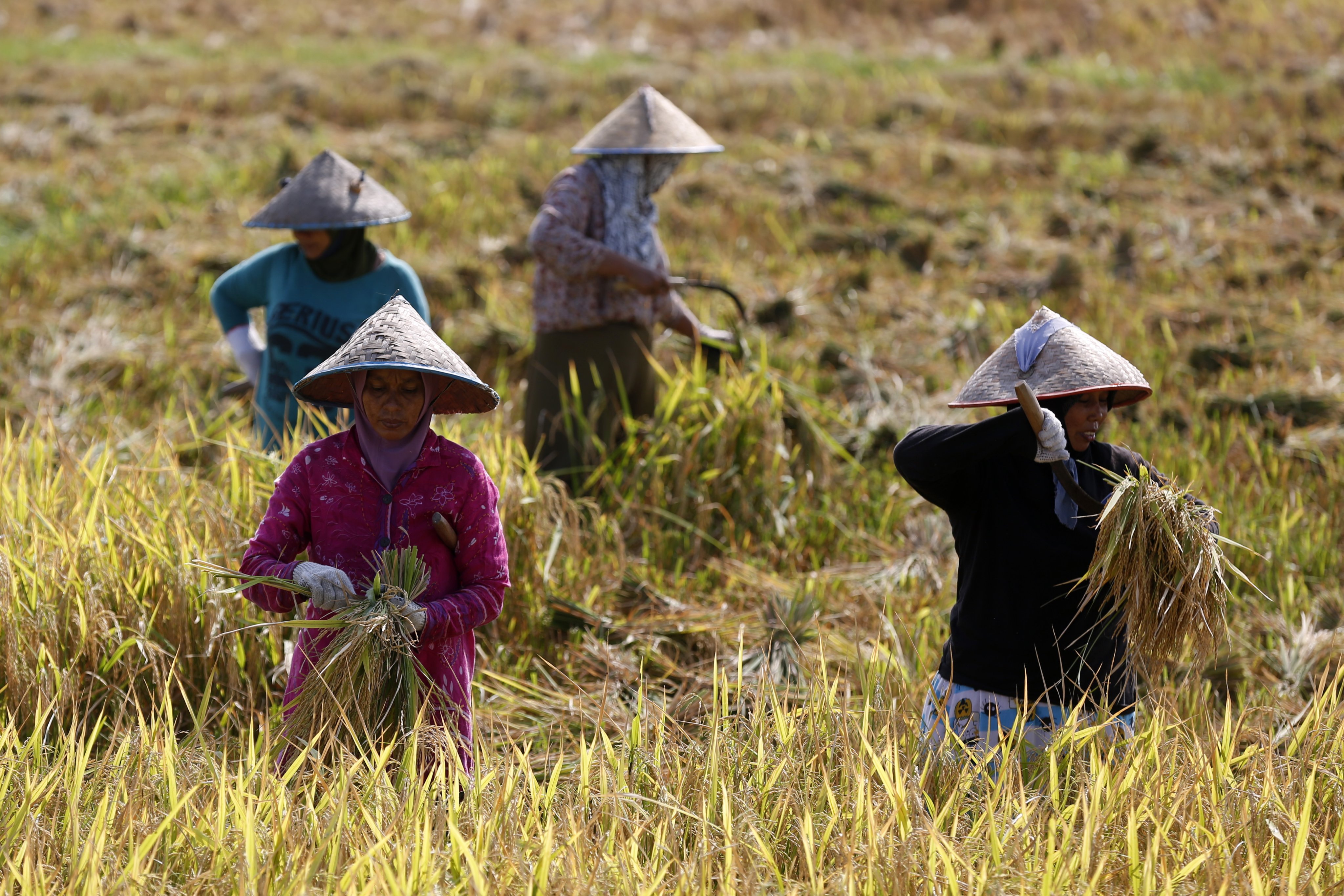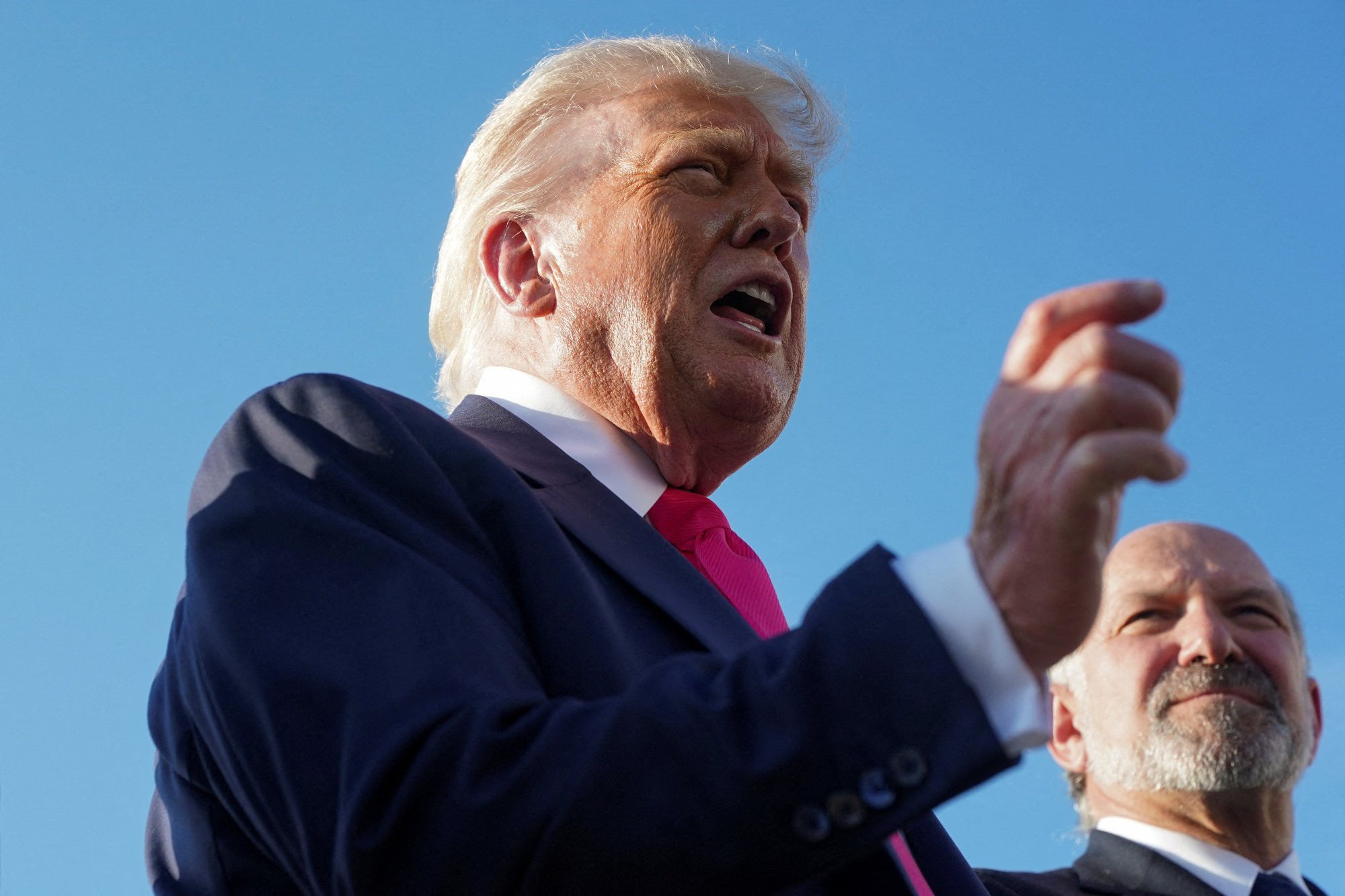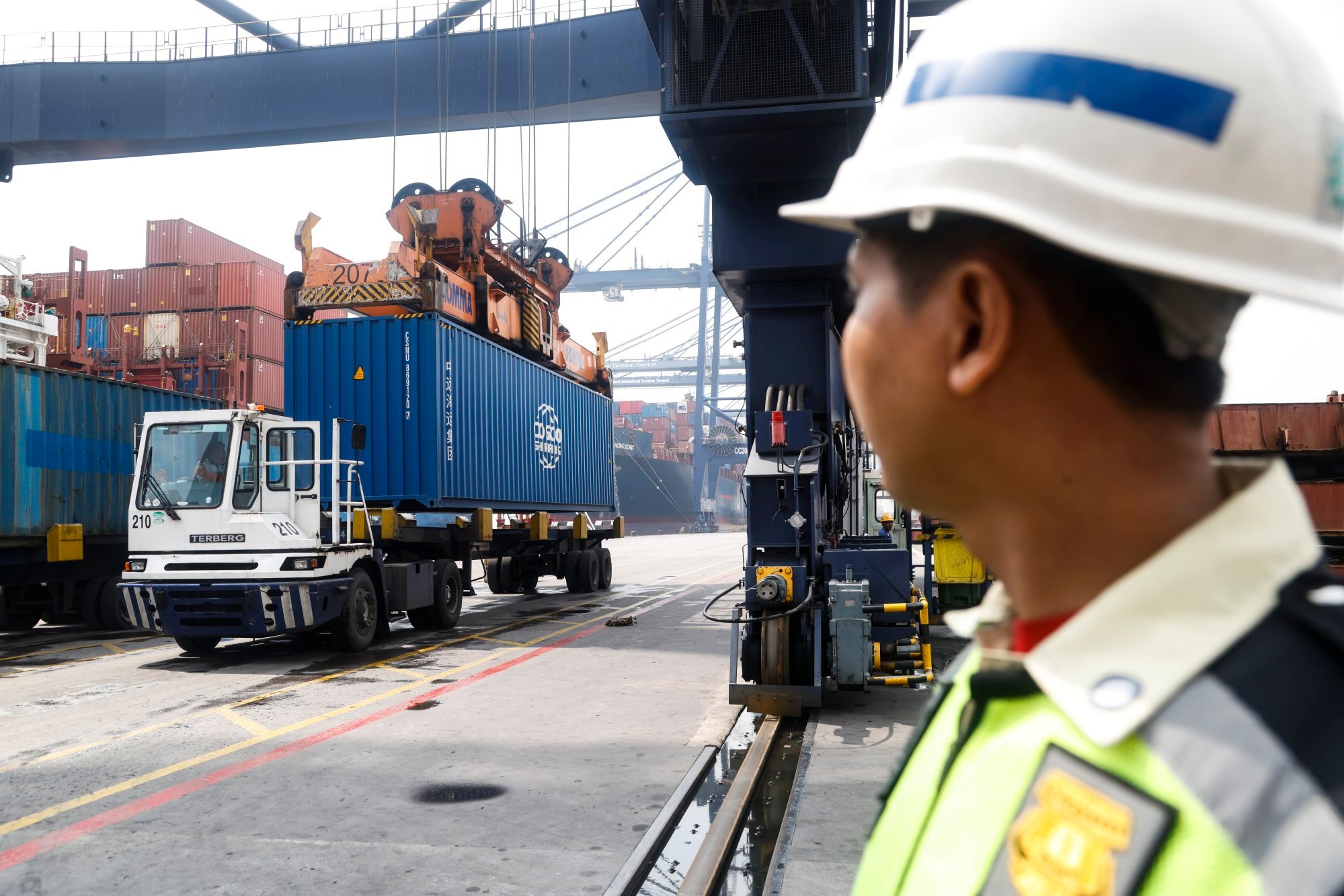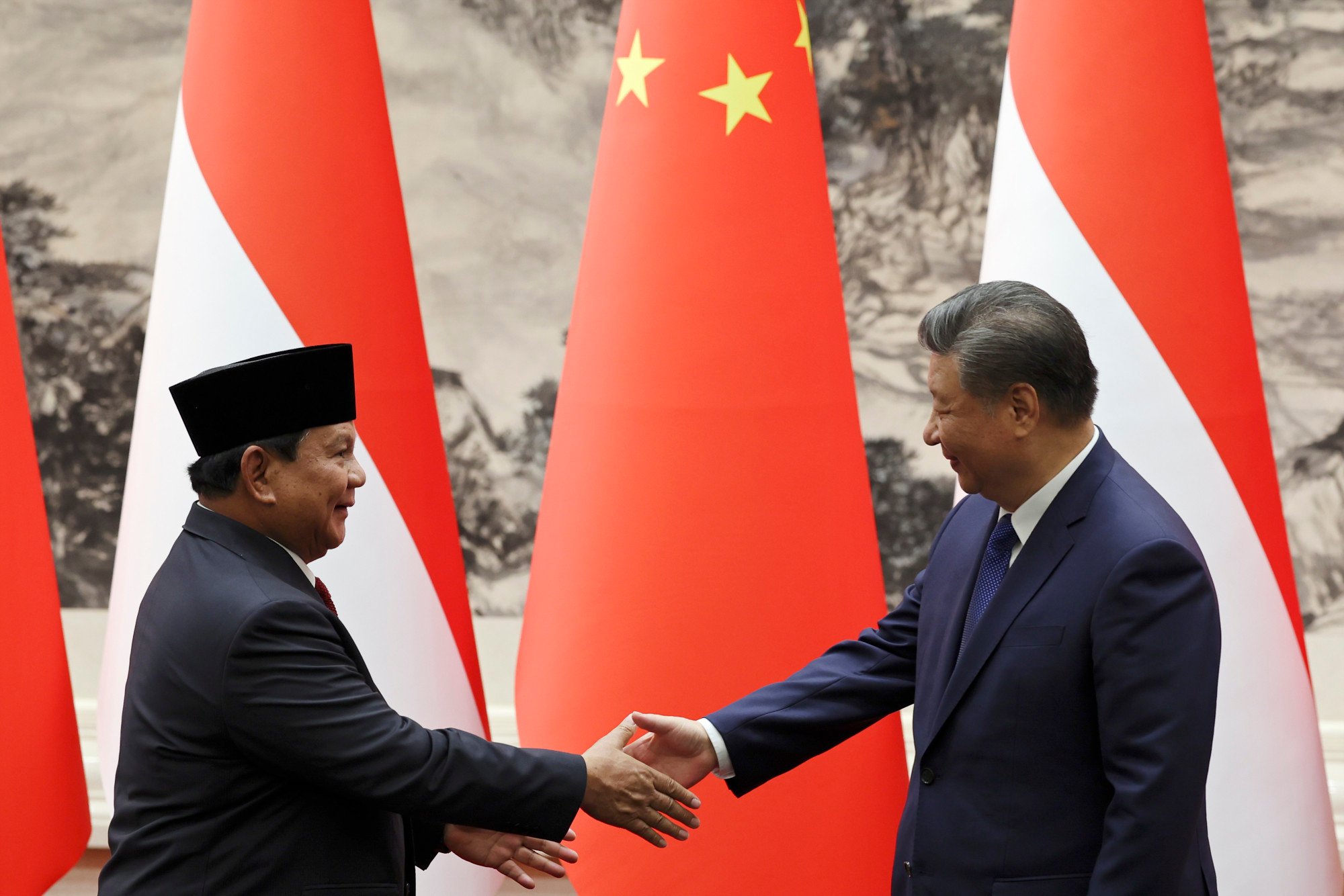Will Indonesia lose out after Trump’s ‘landmark’ trade deal with Prabowo?
While Indonesia’s exports to the US will face a lower 19 per cent tariff, its farming sector could be adversely affected, analysts say

Indonesia has hailed its new trade deal with the United States as a diplomatic “success” that will lower tariffs and boost exports to the world’s largest economy, even as analysts warn the agreement could harm local farmers and compromise energy security.
Hasan Nasbi, head of the presidential communications office, said the deal should be “appreciated”, noting that the 19 per cent tariff imposed on Indonesian goods entering the US market was lower than Vietnam’s 20 per cent rate.
Hasan said that the new levy was not a “small achievement” as it was “the result of extraordinary efforts by our negotiating team,” led by President Prabowo Subianto.
Prabowo wrote on Instagram: “I had a very good call with President Donald Trump. Together, we agreed and concluded to take trade relations between Indonesia and the United States into a new era of mutual benefit.”
Trump on Tuesday announced what he called a “landmark deal” with Prabowo, whom he described as “highly respected”. Under the agreement, US goods will enter Indonesia without tariffs along with an easing of other trade barriers, while Indonesia commits to major purchases of American products.
“Indonesia has committed to purchasing US$15 billion in US energy, US$4.5 billion in American agricultural products, and 50 Boeing jets, many of them 777s,” Trump wrote.
Trump warned that “if there is any transshipment from a higher tariff country, then that tariff will be added on to the tariff that Indonesia is paying”.

Indonesia has consistently posted trade surpluses with the US in the past decade, with last year’s figure at US$16.84 billion, according to the country’s statistics agency.
In April, Trump notified Jakarta that he would subject Indonesian exports to the US to a 32 per cent tariff, but the country was given 90 days to negotiate, during which a 10 per cent universal levy on Indonesian products was applied. On July 7, Trump maintained the 32 per cent tariff, but postponed the implementation to August 1 to give more room for negotiation, a chance taken by Jakarta’s officials as they were “very optimistic” about closing a deal.
Indonesia has pledged to purchase up to US$34 billion worth of American goods, mainly energy and agriculture, and offered the US to jointly invest in its critical minerals sector.
Not ideal
Bhima Yudhistira, executive director at Jakarta-based think tank Centre of Economic and Law Studies (Celios), argued that the trade agreement between the US and Vietnam, under which a 20 per cent tariff would apply, was “better” than the 19 per cent levy deal with Indonesia.
“Vietnam’s tariff reduction from 46 per cent to 20 per cent is more significant than Indonesia’s tariff reduction from 32 per cent to 19 per cent. Vietnam’s negotiations were more effective than Indonesia’s. Ideally, Indonesia could achieve even greater reduction,” Bhima told This Week in Asia on Wednesday.
Unhandled type: inline-plus-widget {“type”:”inline-plus-widget”}
“The difference between Indonesia’s and Vietnam’s tariffs is only 1 per cent, but Vietnam’s manufacturing competitiveness is superior. In this case, we lose.”
The new tariff will benefit Indonesia’s footwear, ready-made clothing, crude palm oil, and rubber producers, whose main export market is the US, but it could harm other sectors such as energy and electronics, according to Bhima.

“Imports of products from the US will swell, including oil and gas, electronics, aircraft parts, cereals such as wheat, and pharmaceuticals. Total imports [from the US] of these five products reached US$5.37 billion in 2024,” he said.
Indonesia was also at risk of increasing its dependency on fuel and liquefied petroleum gas (LPG) imports, which could widen the deficit of its oil and gas trade, Bhima warned.
“The government’s proposed budget for energy subsidy in 2026 is 203.4 trillion rupiah [US$12.4 billion], which is certainly insufficient. We need at least 300-320 trillion rupiah [to subsidise energy],” he said.
Harry Su, managing director of research at investment and securities research firm Samuel Sekuritas Indonesia, said that the US “won a lot” with the deal.
“The big problem is for US products that can enter Indonesia’s market at zero per cent tariff. If chickens from the US enter Indonesia, our local poultry players will undoubtedly all die, translating to five million lost jobs immediately,” Su said in a statement.
“The same also goes for corn. If US corn can freely enter Indonesia, our local farmers will also perish as our production costs are much higher than in the US.”
Su is also concerned about the optics over the trade deal from China’s perspective.

“How will this new ‘friendship’ with the US be perceived by China, our current closest trading partner and biggest investor in Indonesia? This is the elephant in the room,” he said.
Bhima argued that Prabowo’s food self-sufficiency goal would be at risk now that US agricultural products could enter Indonesia tariff-free.
“The US benefits significantly from the … wheat exports to Indonesia due to the 0 per cent tariff. [Indonesian] consumers may be pleased with the drop in instant noodle and bread prices, but local food producers are negatively impacted,” Bhima said.
He urged the Indonesian government to continue with its efforts to further diversify its export markets to Europe and other Asean countries, as the trade deal with Washington would “be detrimental to Indonesia’s position”.
On Sunday, President of the European Commission Ursula von der Leyen, speaking alongside Prabowo, announced that both sides have reached a “political agreement” for the Indonesia-EU Comprehensive Partnership Agreement after 10 years of negotiation.
Indonesia said that the free trade agreement would be concluded and ratified in September, and that it would boost two-way trade with the EU to US$60 billion, from US$30 billion currently.